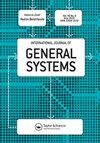具有全状态约束的严格反馈非线性系统的预定义时间事件触发自适应跟踪控制
IF 2.9
4区 计算机科学
Q2 COMPUTER SCIENCE, THEORY & METHODS
引用次数: 0
摘要
摘要研究了具有全状态约束的严格反馈非线性系统的预定义时间事件触发自适应跟踪控制问题。为了处理非对称的全状态约束,引入了一个纯粹依赖于约束状态的非线性状态相关函数(NSDF)。然后,设计了一种交换阈值事件触发机制(ETM)来提高通信资源的使用效率。此外,在基于动态曲面技术的退步设计的每一步中加入平滑调谐函数,构造了一个预定义时间的事件触发自适应跟踪控制器。在这种控制方案下,输出跟踪误差可以在用户设定的时间内被引导到原点的小邻域内。与以往针对全状态约束系统开发的各种控制方案相比,我们提出的方法可以绕过控制器设计中苛刻的可行性条件。最后给出了仿真结果,验证了控制方案的有效性。关键词:事件触发控制全状态约束可行性条件时变调优函数致谢作者感谢匿名编辑和审稿人。数据可用性声明由于本研究的性质,本研究的参与者不同意公开分享他们的数据,因此无法获得支持数据。披露声明作者未报告潜在的利益冲突。本研究得到了国家自然科学基金面上的部分资助[批准号:62203064]。本文章由计算机程序翻译,如有差异,请以英文原文为准。
Predefined-time event-triggered adaptive tracking control for strict-feedback nonlinear systems with full-state constraints
AbstractThis paper investigates the problem of predefined-time event-triggered adaptive tracking control for strict-feedback nonlinear systems (SFNSs) with full-state constraints. To handle asymmetric full-state constraints, a nonlinear state-dependent function (NSDF) that purely depends on the constraint state is introduced. Then, a switching threshold event-triggered mechanism (ETM) is designed to enhance usage efficiency of communication resources. Moreover, a predefined-time event-triggered adaptive tracking controller is constructed by incorporating a smooth tuning function into each step of the backstepping design based on dynamic surface technology. Under such a control scheme, the output tracking error can be steered to the small neighborhood of the origin within the user setting time. Compared to various previous control schemes developed for full-state constrained systems, our proposed method can circumvent the demanding feasibility conditions in controller designs. Finally, a simulation result is given to illustrate the effectiveness of the control scheme.Keywords: Event-triggered controlfull-state constraintsfeasibility conditionstime-varying tuning function AcknowledgmentsThe authors gratefully acknowledge anonymous editors and reviewers.Data availability statementDue to the nature of this research, participants of this study did not agree for their data to be shared publicly, so supporting data is not available.Disclosure statementNo potential conflict of interest was reported by the author(s).Additional informationFundingThis work was partially supported by the National Natural Science Foundation of China [grant number 62203064].
求助全文
通过发布文献求助,成功后即可免费获取论文全文。
去求助
来源期刊

International Journal of General Systems
工程技术-计算机:理论方法
CiteScore
4.10
自引率
20.00%
发文量
38
审稿时长
6 months
期刊介绍:
International Journal of General Systems is a periodical devoted primarily to the publication of original research contributions to system science, basic as well as applied. However, relevant survey articles, invited book reviews, bibliographies, and letters to the editor are also published.
The principal aim of the journal is to promote original systems ideas (concepts, principles, methods, theoretical or experimental results, etc.) that are broadly applicable to various kinds of systems. The term “general system” in the name of the journal is intended to indicate this aim–the orientation to systems ideas that have a general applicability. Typical subject areas covered by the journal include: uncertainty and randomness; fuzziness and imprecision; information; complexity; inductive and deductive reasoning about systems; learning; systems analysis and design; and theoretical as well as experimental knowledge regarding various categories of systems. Submitted research must be well presented and must clearly state the contribution and novelty. Manuscripts dealing with particular kinds of systems which lack general applicability across a broad range of systems should be sent to journals specializing in the respective topics.
 求助内容:
求助内容: 应助结果提醒方式:
应助结果提醒方式:


